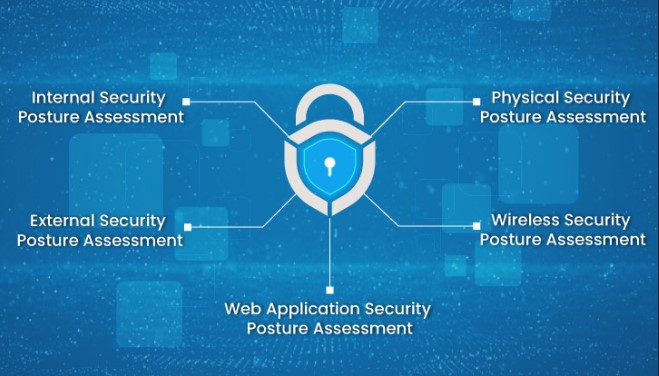Enhancing Cyber Security Posture for Small Businesses
March 1, 2024

In today’s modern business, small enterprises are increasingly reliant on digital tools and platforms. While these technologies offer efficiency and connectivity, they also expose businesses to a plethora of cyber threats. Establishing a robust cybersecurity posture is not a luxury but a necessity for small businesses. In this blog, we’ll delve into the key elements of enhancing cybersecurity posture for small enterprises, providing actionable insights to fortify their digital ramparts.
- Know Thy Enemy
- The Castle Approach
- Patching the Moat
- The Human Shield
- Guarding the Perimeter
- The Digital Safe House
- Ready for Battle
Conduct a Comprehensive Risk Assessment: Know Thy Enemy
Understanding the specific cybersecurity risks facing your small business is the first step in fortifying your defenses. Conduct a thorough risk assessment to identify potential vulnerabilities, assess the impact of a breach, and prioritize areas that require immediate attention. This foundational step sets the stage for crafting a targeted and effective cybersecurity strategy.
Implement a Layered Defense Strategy: The Castle Approach
Building a robust defense requires a multi-faceted approach. Implementing a layered defense strategy involves combining various security measures to create a comprehensive barrier against cyber threats. This may include firewalls, antivirus software, intrusion detection systems, and secure network configurations. A multi-layered approach ensures that even if one line of defense is breached, others remain intact.

Regular Software Updates: Patching the Moat
Outdated software is akin to leaving a castle gate unguarded. Cybercriminals often exploit known vulnerabilities in software to gain unauthorized access. Regularly updating software and systems, including applications and operating systems, is critical to patching potential security holes. Automate updates whenever possible to minimize the risk of oversight.
Employee Training and Awareness: The Human Shield
Your employees are both the front line and the last line of defense in your cybersecurity posture. Investing in comprehensive cybersecurity training for employees helps create a vigilant human shield. Educate them about phishing threats, social engineering tactics, and the importance of strong password practices. A well-informed workforce is a formidable asset in the fight against cyber threats.
Endpoint Security: Guarding the Perimeter
With the rise of remote work, securing endpoints (devices like laptops, tablets, and smartphones) is more critical than ever. Endpoint security solutions protect devices from malware, ransomware, and other malicious activities. Implementing robust endpoint protection, coupled with device management policies, helps extend the security perimeter to wherever your employees work.

Data Backup and Recovery: The Digital Safe House
In the event of a cyberattack or data loss, having a reliable backup and recovery plan is akin to having a safe house. Regularly back up critical data and ensure that the backup is stored securely and independently from your main system. This ensures that even if data is compromised, it can be restored, minimizing downtime and potential losses.
Incident Response Plan: Ready for Battle
No matter how fortified your castle is, breaches can still occur. Having a well-defined incident response plan is crucial for minimizing the impact of a cybersecurity incident. Outline clear steps for identifying, containing, eradicating, recovering, and learning from security incidents. Regularly test and update the plan to ensure its effectiveness in real-world scenarios.
Always remember, the security posture of small businesses is a critical factor in their resilience and sustainability. By adopting a proactive and comprehensive approach to cybersecurity, small enterprises can fortify their digital defenses and navigate the evolving threat landscape with confidence. Remember, cybersecurity is not a one-time investment but an ongoing commitment to protecting your business and its digital assets.

Recent Posts
Have Any Question?
Call or email Cocha. We can help with your cybersecurity needs!
- (281) 607-0616
- info@cochatechnology.com





